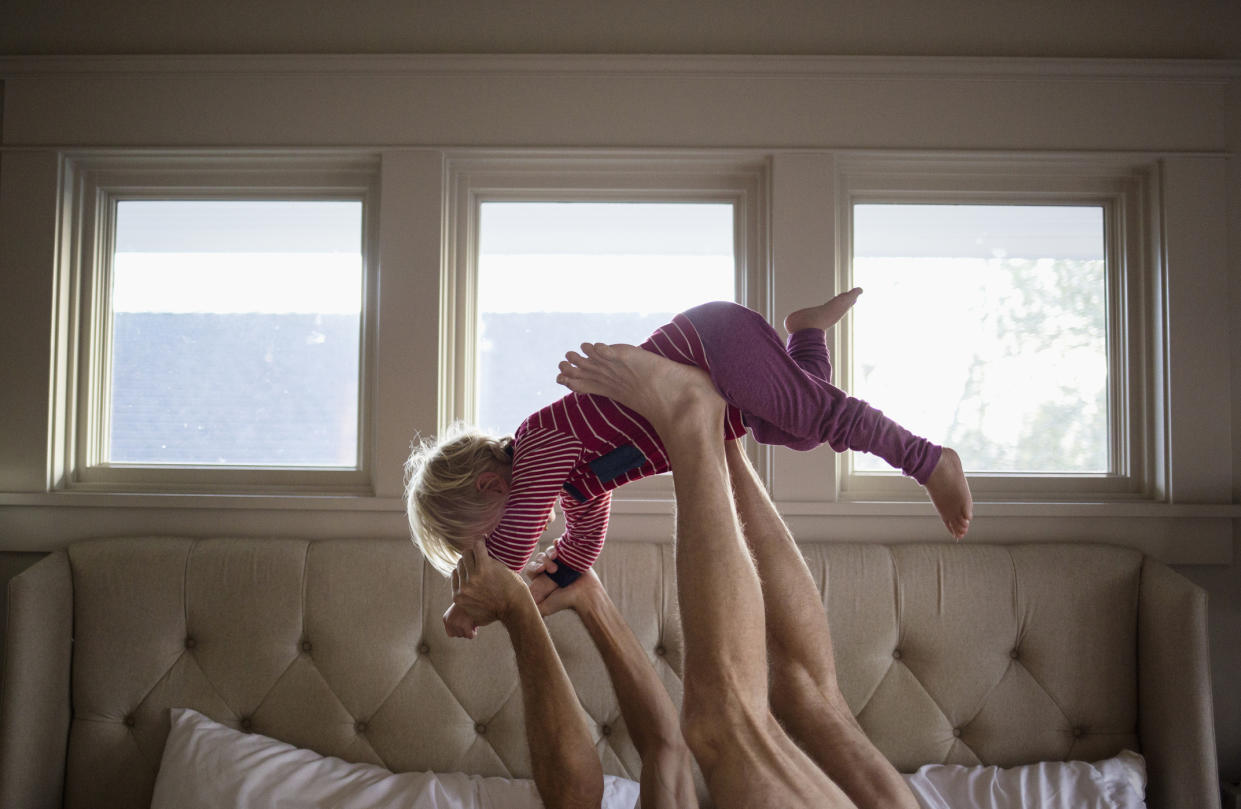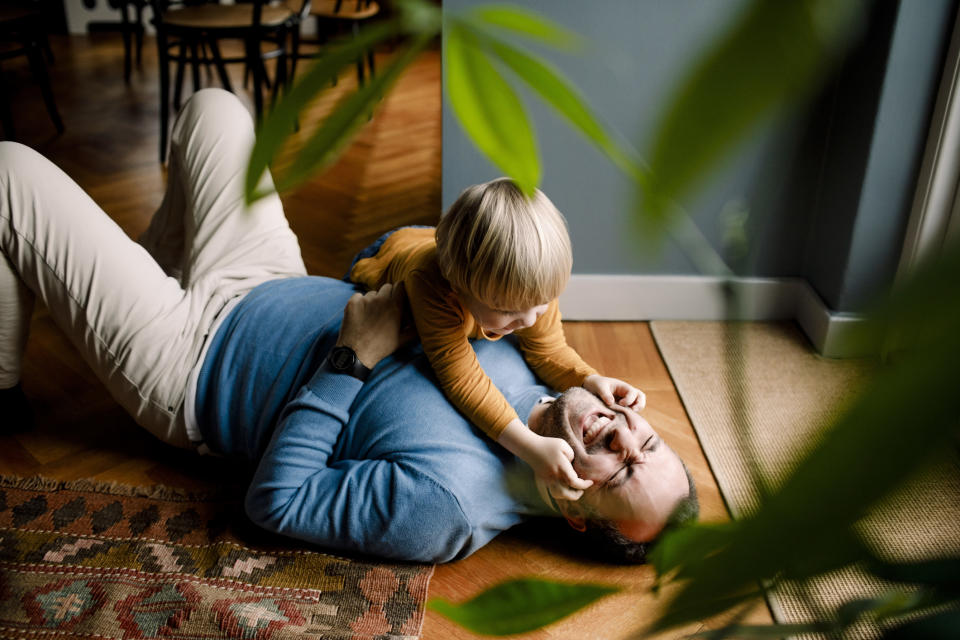Physical play with dads could help children control their emotions, new research finds

Children whose dads spend time playing with them at an early age could find it easier to control their behaviour and emotions when they get older, new research has revealed.
The study, carried out by Cambridge University’s faculty of education and the LEGO Foundation analysed how mums and dads play with children aged up to three years and how it impacts child development.
While there are many similarities in the way parents play with their children, the research found that fathers tend to engage in more physical, rough and tumble type play, such as tickling, piggy backs and chasing games.
Researchers believe this type of play seems to help children learn to control their feelings and regulate their behaviour later in life, for example when they start school.
The research is based on analysis of data from 78 previous studies, carried out mainly in Europe or the US between 1977 and 2017, which found a consistent link between dad/kiddie play and a child’s ability to control their feelings when they are older.
Read more: TikTok clip showing a baby being thrown into a swimming pool sparks debate
Results revealed that on average most fathers play with their child every day, but even with babies and toddlers the type of play they engage in tends to be more physical.
Children who enjoyed what study authors describe as “high-quality” playtime with their fathers were less likely to display hyperactivity, emotional or behavioural difficulties.
Results also appeared to show they were better able to control their aggression, and were less likely to lash out at other children during arguments at school.
One potential reason for this could be that the physical play fathers tend to prefer is particularly well-suited for developing these skills.
Read more: David Beckham, Barack Obama and Gordon Ramsay top hottest celebrity dads list

Commenting on the findings Paul Ramchandani, professor of play in education, development and learning at the University of Cambridge and one of the authors of the study, said: “Physical play creates fun, exciting situations in which children have to apply self-regulation. You might have to control your strength, learn when things have gone too far – or maybe your father steps on your toe by accident and you feel cross.
“It’s a safe environment in which children can practise how to respond. If they react the wrong way, they might get told off, but it’s not the end of the world – and next time they might remember to behave differently.”
Read more: Charting the over-50 dads' club
However, the authors are keen to stress that children who only live with their mum are not necessarily at a disadvantage.
“One of the things that our research points to time and again is the need to vary the types of play children have access to, and mothers can, of course, support physical play with young children as well,” Ramchandani added.
“Different parents may have slightly different inclinations when it comes to playing with children, but part of being a parent is stepping outside your comfort zone. Children are likely to benefit most if they are given different ways to play and interact.”
Fellow author Dr Ciara Laverty, from the LEGO Foundation, said she hoped the findings might help encourage policy changes that could provide parents, in particular fathers, with time and space to play with their children during the early years.
“Even today, it’s not unusual for fathers who take their child to a parent-toddler group, for example, to find that they are the only father there. A culture shift is beginning to happen, but it needs to happen more.”



